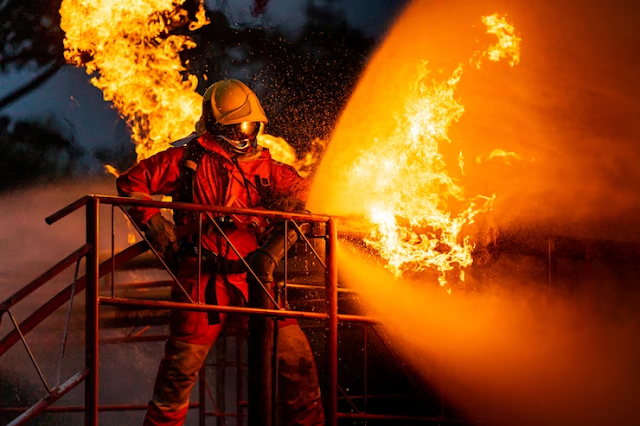A Comprehensive Guide to Fire Safety Precautions in the Workplace
Introduction:
Explore crucial fire safety measures and practices that can save lives and protect property in the event of a fire emergency. Understanding the importance of fire safety and being well-prepared can make a significant difference in the face of adversity. Fire safety is a shared responsibility that applies to homes, workplaces, and public spaces. By staying informed about fire prevention, fire extinguisher types, evacuation plans, and more, you can enhance your safety and that of those around you.
The Importance of Fire Safety:
Fire safety is paramount as fires can spread rapidly, causing devastation and putting lives at risk. Knowing how to prevent fires and respond appropriately in case of an emergency is essential for everyone.
Fire Prevention Tips:
Install Smoke Alarms: Place smoke alarms on every level of your home and inside each bedroom. Test them monthly and replace batteries as needed.
Fire Hazard Awareness: Be cautious with flammable materials, such as curtains, towels, and papers, keeping them away from heat sources.
Electrical Safety: Regularly inspect electrical cords and outlets for damage, and avoid overloading circuits.
Cooking Safety: Never leave cooking unattended, and keep flammable items away from the stove.
Candle and Heater Safety: Keep candles away from flammable objects and turn off heaters when not in use.
Smoking Safety: If you smoke, do so outdoors and ensure that cigarette butts are fully extinguished.
Types of Fire Extinguishers:
Class A: Suitable for ordinary combustibles like wood, paper, and cloth.
Class B: Effective on flammable liquids such as gasoline and oil.
Class C: Designed for electrical fires.
Class D: Used for fires involving combustible metals.
Class K: Ideal for kitchen fires involving cooking oils and fats.
Choosing the Right Fire Extinguisher:
Selecting the appropriate fire extinguisher depends on the potential fire hazards in your environment. Consider multi-purpose extinguishers for versatile protection.
Fire Evacuation Plans:
Identify Exit Points: Familiarize yourself with all available exit points in your home or workplace.
Plan Escape Routes: Create escape routes from each room, and practice them with your family or colleagues.
Designate Meeting Areas: Establish meeting points at a safe distance from the building.
Stay Low in Smoke: In a fire, stay close to the ground where the air is less toxic.
Emergency Numbers:
Keep emergency contact numbers, including the fire department, readily accessible.
Fire Safety Equipment Maintenance:
Regularly inspect and maintain fire safety equipment, such as smoke alarms and fire extinguishers, to ensure they are in proper working condition.
Fire Drills and Training:
Conduct fire drills regularly to ensure everyone knows what to do in case of an emergency. Provide training on using fire extinguishers correctly.
Fire Safety at Workplaces:
Employers must have fire safety plans, conduct fire drills, and provide employees with proper training on fire safety procedures.
Fire Safety for Children:
Teach children about fire safety, including how to respond to the sound of a smoke alarm and the importance of not playing with fire.
Fire Safety in Public Places:
Pay attention to fire safety measures in public buildings, hotels, and entertainment venues.
FAQs:
What Should I Do If a Fire Breaks Out?
If a fire occurs, remain calm, evacuate immediately, and call the fire department.
Are Fire Drills Necessary at Home?
Fire drills at home are essential to ensure everyone knows how to escape safely.
Can I Fight a Small Fire Myself?
You may attempt to extinguish a small fire only if you are confident and have the appropriate fire extinguisher. Otherwise, evacuate immediately.
How Often Should I Replace Smoke Alarm Batteries?
Test smoke alarms monthly and replace batteries at least once a year.
Are All Fire Extinguishers the Same?
No, fire extinguishers are designed for specific types of fires. Choose the one suitable for your needs.
Can I Reuse a Fire Extinguisher After Use?
Once used, a fire extinguisher needs to be recharged by a professional and may require maintenance.
Conclusion:
Fire safety is a vital aspect of life that demands attention and preparedness. By following fire prevention tips, understanding fire extinguisher types, creating evacuation plans, and staying informed, you can protect yourself and others from the devastating effects of fires. Prioritize fire safety in your home, workplace, and public spaces to ensure a secure and well-prepared environment for all.




Comments
Post a Comment